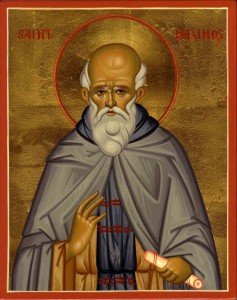Another outstanding Father of the Church, which everyone should be acquainted with, is MAXIMOS THE CONFESSOR. I truly hope that his name does not come as a surprise to anyone reading my Bulletin since I have mentioned him many times before. He is one of the foremost Fathers of the Eastern Church.
The complex and convoluted structure of his thought and literary style, coupled with the highly allegorical character of his interpretation of the sacred scriptures, all make reading Maximus an extremely difficult task. But, I believe, any truly Eastern Christian should be aware of his writings and thought.
A further complication in Maximus is that the headings that appear in many of his writings often appear to be misleading, as them seem to bear little or no direct resemblance to their content. This is often due to the fact that his individual writings must be put into the context of his total writings.
Nevertheless, despite these initial difficulties and apparent obstacles, to the persevering person is revealed a depth of meaning and an originality of thought which is second to none in patristic literature. The tight cohesion of his thought is matched only by his profound understanding of the spiritual life, which pervades his theology. Indeed, taken at any given point, his thought immediately brings one into contact with the whole of an extremely complex and all-embracing vision of God, man and the universe.
The cyclical or repetitious character of his thought is equally evident in his treatment of the Transfiguration of Christ – reflected in the overlapping and intertwining of the numerous themes and motifs contained therein. Indeed the uniqueness of his ultimate contribution to the question of the Transfiguration resides chiefly in the application of the Mt Taborian revelation into the vast landscape of his theology.
Maximus’ treatment of the Transfiguration is influenced by the early Apologists of the so-called Alexandrian school (particularly Origen and Cyril of Alexandria), the school in Cappadocia, namely Gregory of Nyssa and Dionysius the Areopagite.
The concept which dominates Maximus’ vision of the Transfiguration of Christ and his theological system as a whole, is influenced by Dionysius’ idea of the deification of man. Although not called by the name Theosis, this central ideal of Eastern spirituality seems to permeate all of Maximus’ writings.

